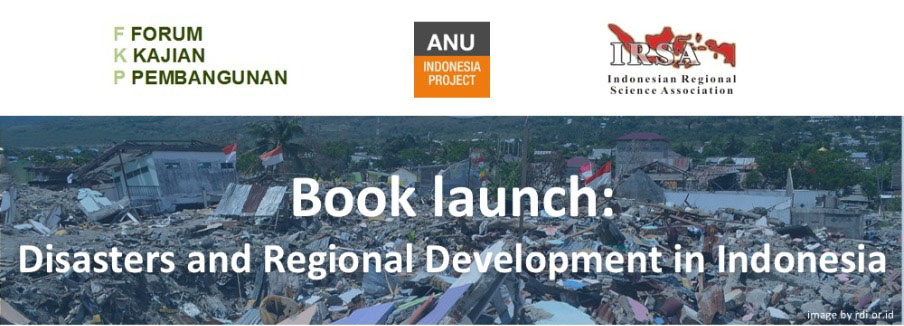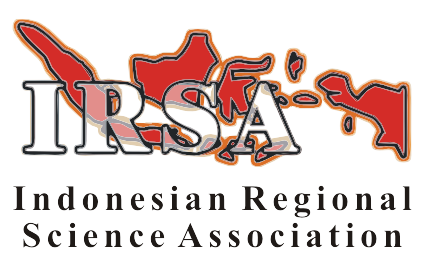August 27, 2020
Book launch: Disasters and Regional Development in Indonesia

Date: Thursday, 3 September 2020
Time: 10 – 11:30 am WIB
Join via Zoom (registration required): bit.ly/fkp3september
Program
- Introduction by moderator: Cut Dewi (Director, ICAIOS, and Lecturer, Universitas Syiah Kuala)
- Launch: Arief A. Yusuf (President, Indonesian Regional Science Association, and Professor, Universitas Padjadjaran)
- Presentation by authors:
- The impact of disaster on mental health: the case of the 2006 Yogyakarta earthquake,
Mustika Septiyas Trisilia, Catur Sugiyanto and Diana Setiyawati (Universitas Gadjah Mada) - Comparative analysis of healthcare service quality across regions in Indonesia,
Muhammad Mulia, Amirusholihin and Edy Purwanto (SurveyMeter)
- The impact of disaster on mental health: the case of the 2006 Yogyakarta earthquake,
- Discussant: Bernadette Robiani (Professor, Universitas Sriwijaya)
- Q & A
- Closing by moderator: Cut Dewi
Join via YouTube (no registration): https://www.youtube.com/user/ANUIndonesiaProject/live
Download event poster here.
